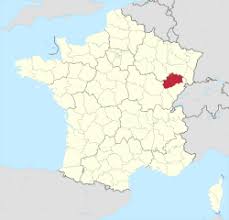
Introduction
Dijon, the capital of the Bourgogne-Franche-Comté region in France, stands as a testament to rich history and cultural significance. Well-known for its mustard, Dijon is a city that combines gastronomic delights with a stunning architectural heritage. As one of France’s most important cities during the Middle Ages, it serves as a vibrant hub for both tourism and education today, attracting visitors from all over the globe.
Historical Significance
Dijon gained prominence in the 14th century as the capital of the Duchy of Burgundy, an influential state in European history. Its strategic location facilitated trade and culture, allowing the city to flourish. The lavish palaces and churches, such as the Palais des Ducs de Bourgogne, showcase its medieval wealth and power. UNESCO has recognised the city’s historical centre, which remains well-preserved and filled with notable landmarks, further emphasising its relevance in European history.
Culinary Heritage
No discussion of Dijon would be complete without mentioning its most famous export – Dijon mustard. The city is the birthplace of this iconic condiment, which has become a staple in kitchens around the world. Its unique blend of spice and creaminess has created countless culinary innovations. In recent months, local producers have met an increased demand for organic and artisanal mustard, reflecting a global trend towards gourmet foods. The city’s annual gastronomy festival celebrates its rich food culture, attracting chefs and food enthusiasts alike.
Current Events and Tourism
As of late 2023, Dijon continues to thrive as a bustling tourist destination. Efforts to promote sustainable tourism have revitalised the area, reinforcing local businesses and encouraging visitors to explore its historical sites, such as the Owl’s Trail, which guides tourists through the city’s architectural gems. Recent investments in public transport and cultural events, including art exhibitions and music festivals, have further enhanced its appeal. In response to growing international interest, the city has launched marketing campaigns to showcase its diverse offerings.
Conclusion
Dijon stands out not only for its historical significance and culinary heritage but also as a vibrant modern city adapting to contemporary challenges and opportunities. With its ongoing initiatives to attract tourism and preserve its rich cultural landscape, Dijon is poised for continued relevance in the 21st century. For travellers and food lovers alike, also for those interested in history, a visit to Dijon is a journey through the past and into the future of French culture.
You may also like

Exploring Wolverhampton: A Gateway to Culture and History

Understanding the Modern Landscape of France

Discovering the Wonders of Azerbaijan
SEARCH
LAST NEWS
- Remembering Wendy Richard: The Promise to Co-Star Natalie Cassidy
- How Did Anglian Water Achieve an ‘Essentials’ Rating for Mental Health Accessibility?
- Shai Hope Leads West Indies in T20 World Cup Clash Against South Africa
- What We Know About Weston McKennie: Future at Juventus and Past at Leeds
- What We Know About the Upcoming Live Nation Antitrust Trial